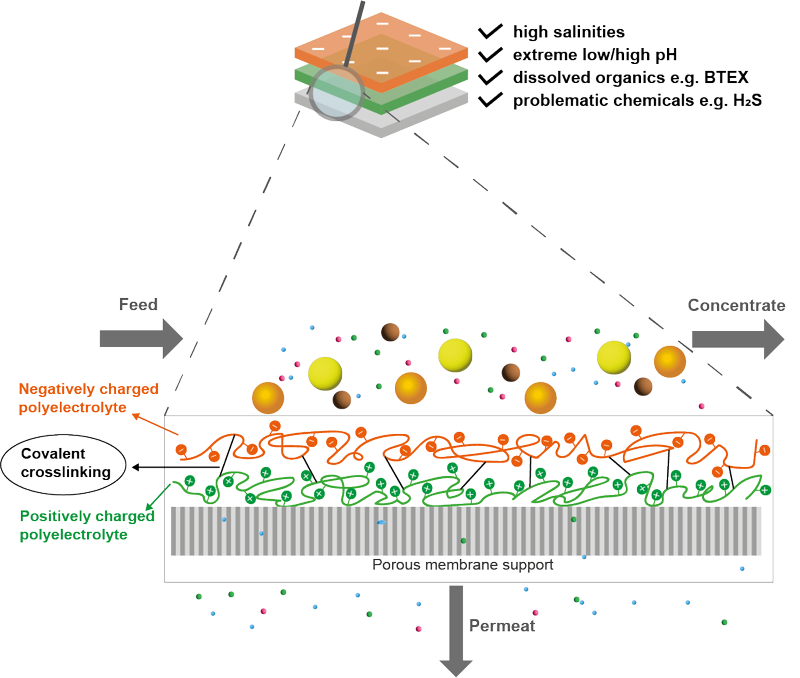Stable polyelectrolyte multilayer-based membranes for produced water treatment under harsh conditions
- Persons involved: Xiao Zhang (PhD Candidate), Wiebe de Vos (promotor), Esra te Brinke (supervisor), Antoine Kemperman (supervisor), Henk Miedema (Wetsus supervisor)
- Duration: 2022-2026
- Funding: EMPOWER - European Union’s Horizon 2020 research and innovation program under the Marie Sklodowska-Curie grant agreement No. 10103432
Introduction
In the petroleum industry, enhanced oil recovery generates a large aqueous waste stream called produced water (PW). PW can have very harsh conditions, including high salinity, extreme pH values, high temperature, the presence of dissolved solvents organics, and problematic chemicals (e.g. H2S, surfactants). Clearly, high stability against these harsh conditions will be required for any technology to treat produced water.
Key words
Polyelectrolytes, nanofiltration, produced water treatment, layer-by-layer, harsh conditions
Technological challenges
Nanofiltration (NF) membranes coated with polyelectrolyte multilayers (PEMs) have been shown to be stable to physical and chemical cleaning, as well as under extreme pH conditions. Still, high salinity and surfactants can damage PEM coatings. BTEX compounds and H2S can diffuse into the membrane support and affect its stability. Further work focused on developing highly stable membranes under all harsh conditions described above, is required.
Research goal
The main goal of this project is to develop a stable PEM-based NF membrane for use under harsh conditions.


